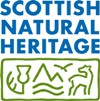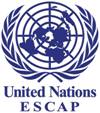

Department of Conservation - New Zealand
www.doc.govt.nz
This Department of Conservation (DOC) site has information about the protection of New Zealand's natural and historic heritage, how and where you can enjoy public conservation places and how to get involved in conservation.
Subject(s): Endangered Species; Exchange of Information; Marine and Coastal Biodiversity; Tourism and Biodiversity; Protected Areas / In-Situ Conservation; Invasive Alien Species


Environment Canada
www.ec.gc.ca
Environment Canada's mandate is to preserve and enhance the quality of the natural environment; conserve Canada's renewable resources; conserve and protect Canada's water resources; forecast weather and environmental change; enforce rules relating to boundary waters; and coordinate environmental policies and programs for the federal government.
Subject(s): Endangered Species; Exchange of Information; Marine and Coastal Biodiversity; Tourism and Biodiversity; Climate Change and Biodiversity; Health and Biodiversity; Research and Science

Green Passport Campaign-- Holidays for a living planet
www.unep.fr/greenpassport
A global campaign including green travel tips for the world's growing number of international tourists have been developed and launched by the United Nations Environment Programme (UNEP). The internet-based campaign, "Green Passport", aims to raise tourists' awareness of their potential to contribute to sustainable development by making responsible holiday choices. Visit our website to learn how you can going green while you are on the go! Available in English, Portuguese and French.
Subject(s): Tourism and Biodiversity; Sustainable Use of Biodiversity


National Parks Board - Singapore
www.nparks.gov.sg
This sums up our vision and mandate. We conserve, create, sustain and enhance the green infrastructure of our Garden City.
Combining the visual delights and rich bio-diversity of our parks, gardens & nature reserves with thoughtfully-planned recreational activities, we facilitate your communion with Nature.
Subject(s): Communication, Education and Public Awareness

Scottish Natural Heritage
www.snh.org.uk
Scotland's natural heritage underpins these subjects: economy, health, education, and well-being. A healthy environment leads to healthy people and a healthy economy. The mission described on the website, is based on a simple principle: we must care for and sustain our natural heritage if we want it to sustain us. It role is to look after the natural heritage, help people to enjoy and value it, and encourage people to use it sustainably.
This website describes what the organization realizes on key issues such as sustainable development, biodiversity, climate change, transport and community regeneration.
Subject(s): Protected Areas / In-Situ Conservation; Scientific Assessment; Research and Science; Access to Genetic Resources and Benefit-sharing; Agricultural Biodiversity; Marine and Coastal Biodiversity; Communication, Education and Public Awareness; Biosafety and Biotechnology; Endangered Species; National Reports; National Biodiversity Strategies and Action Plans (NBSAP)

Slootweg en van Schooten
www.sevs.nl/ENGELS/start.htm
SevS is active in development of conceptual approaches in the fields of Strategic Environmental Assessment and Impact Assessment, Biodiversity, Communication and Public Participation, Sustainable Tourism, Wetlands, Water and Coastal management.
Subject(s): Health and Biodiversity; Exchange of Information; Communication, Education and Public Awareness; Tourism and Biodiversity; Dry and Sub-Humid Lands Biodiversity; Inland Waters Biodiversity; Marine and Coastal Biodiversity

The International Ecotourism Society
www.ecotourism.org
TIES promotes ecotourism, which is defined as "responsible travel to natural areas that conserves the environment and improves the well-being of local people," by:
- Creating an international network of individuals, institutions and the tourism industry;
- Educating tourists and tourism professionals; and
- Influencing the tourism industry, public institutions and donors to integrate the principles of ecotourism into their operations and policies.
Subject(s): Tourism and Biodiversity; Traditional Knowledge, Innovations and Practices - Article 8(j); Business and Biodiversity

United Nations Economic and Social Commission for Asia and the Pacific (ESCAP)
www.unescap.org
The United Nations Economic and Social Commission for Asia and the Pacific (ESCAP) is the regional development arm of the United Nations for the Asia-Pacific region. ESCAP is the most comprehensive of the United Nations five regional commissions. It is also the largest United Nations body serving the Asia-Pacific region with over 600 staff.
Subject(s): Biodiversity for Development; Economics, Trade and Incentive Measures; Tourism and Biodiversity; Sustainable Development / Millenium Development Goals; Communication, Education and Public Awareness; Cooperation and Partnerships

US National Parks
https://www.loveholidays.com/holidays
/enjoying-us-national-parks-responsibly
The US is home to 62 national parks. Yellowstone became the world’s first national park in 1872. And in the years that followed, numerous other areas became national parks and, as part of the Organic Act 1916, the US National Park Service was created in 1916 to "conserve the scenery and the natural and historic objects and wildlife therein, and to provide for the enjoyment of the same in such manner and by such means as will leave them unimpaired for the enjoyment of future generations." NPS is now responsible for more than 400 separate areas making up about 85 million acres, including national parks, national preserves, monuments, recreation areas, seashores, lakeshores, historic parks and sites, parkways, scenic trails, and battlefields.
Within the system, 62 sites are designated as national parks. The selection criteria for national parks includes aspects like unique geological features or unusual ecosystems, recreational opportunities, and, of course, natural beauty.
Subject(s): Tourism and Biodiversity

World Tourism Organization
www.world-tourism.org
The World Tourism Organization (UNWTO/OMT) is a specialized agency of the United Nations and the leading international organization in the field of tourism. It serves as a global forum for tourism policy issues and a practical source of tourism know-how.
UNWTO plays a central and decisive role in promoting the development of responsible, sustainable and universally accessible tourism, paying particular attention to the interests of developing countries.
Subject(s): Tourism and Biodiversity; International Year of Biodiversity - 2010